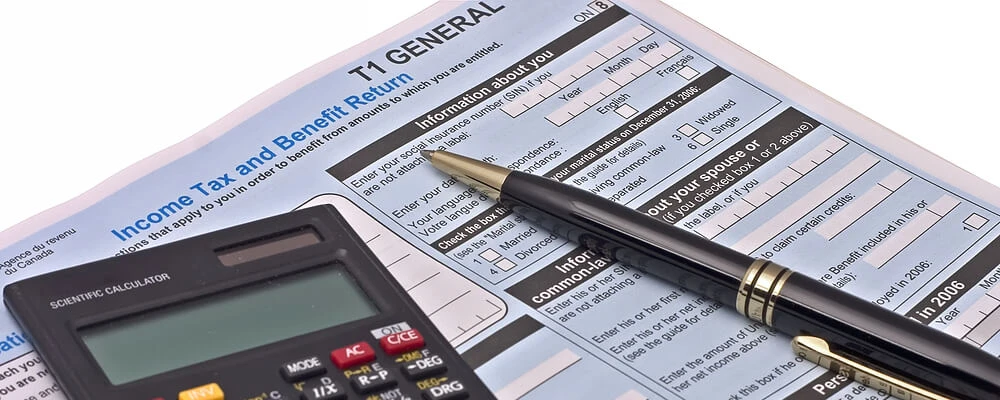Moving Abroad

Container Shipping

Information & Popular Routes
Services

Find a Mover


Everyone’s favorite subject, taxes, is an important one to understand for your upcoming move to Canada. The ins and outs of taxes in Canada can have major impacts on how much tax you pay or where you might choose to live. Read on to learn more about the different taxes and tax rates in Canada so you can be the international personal finance wizard you have always dreamed of being!
Like most countries, Canada applies taxes at different rates for different reasons. The two main taxes in Canada that the average citizen will directly encounter include income tax and sales tax.
Other taxes apply, but these are either more individually specific or are built into the prices of consumer goods (like alcohol or gasoline).
For questions like ‘What is the tax rate in Canada?’ and ‘How much are Canadian income taxes?,’ we dive into the rates for the more typical taxes below.
*Sponsored
Familiar to all working Americans, Canadian taxes include an income tax. The Canadian tax system strives for fairness, which means that the wealthiest of Canadians are obliged to pay more out of their income than those less well off.
How much Canadian taxes you pay is determined progressively, meaning that different amounts of your income are taxed at different rates. For example, the first $42,282 is taxed at 15%, and everything after that at a progressively higher rate. The ranges where rates apply are called tax brackets:
| Income of individual | Tax rate |
|---|---|
| $45,282 and less | 15% |
| $45,282 to $90,563 | 20.5% |
| $90,563 to $140,388 | 26% |
| $140,388 to $200,000 | 29% |
| More than $200,000 | 33% |
It is important to remember, however, that each province levies its own income tax. This means that in addition to the above shown federal income tax brackets, separate brackets apply depending on the province you live in—as if we needed more math involved!
Many American states also levy sales tax on consumer goods, and the Canadian tax system follows a similar but distinct system. In America, sales tax is left almost entirely to the individual states, while in Canada the sales tax rate is a combined figure of federal and provincial rates to form a harmonized sales tax (HST).
The federal rate on goods and services is 5%, with the provincial rate ranging from 0% to 10% (that’s quite a difference!). Learn more about provincial sales tax rates in the table below:
| Province | Provincial rate |
|---|---|
| Alberta | 0% |
| British Columbia (BC) | 7% |
| Manitoba | 8% |
| New-Brunswick | 10% |
| Newfoundland and Labrador | 10% |
| Northwest Territories | 0% |
| Nova Scotia | 10% |
| Nunavut | 0% |
| Ontario | 8% |
| Prince Edward Island (PEI) | 10% |
| Quebec | 9.975% |
| Saskatchwan | 5% |
| Yukon | 0% |
Just like back home, there is a rush around tax time each year. One’s taxes in Canada are obliged to be filed each year so that any outstanding tax amounts can be settled by the federal and provincial governments.
Tax Day in Canada is May 2nd, and typically the Canadian Revenue Agency (CRA) processes tax filings within four to six weeks. To make the processing time faster, individuals can file their taxes electronically— which means getting that sweet tax return sooner!
However, we have good news and bad news. Good news is that taxes in Canada are comparatively easier to file than American taxes. Bad news is that the reason for the easier filing is that there are fewer possible deductions. We get it, we would not mind the extra paperwork either…
Sirelo Tip! Don’t forget, your income is still subject to American taxes too! Because the US applies global taxation, Uncle Sam still gets his cut. Learn more about the implications this may have for you.
The taxes in Canada might be the least fun part about the place. Why not check out some of the other aspects of moving to Canada? In our full expat relocation guide you will learn everything from moving costs to visas to healthcare and more. Or, check out some of the linked articles below for further reading. Good luck!